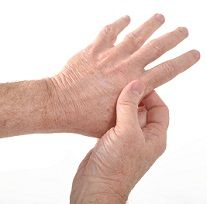Article
Rheumatoid Arthritis Patients Prioritize Quick Relief Above All Else
Author(s):
Asked to assume equal cost-effectiveness, the patients were given eight facets of treatment and asked to rank them between 1 and 8, with 1 being the most important to them and 8 being the least.

According to findings presented in a poster presentation at the 2016 American College of Rheumatology Annual Meeting, patients with rheumatoid arthritis (RA) want a fast-acting, orally administered treatment for their symptoms.
The study was led by Baojin Zhu and conducted by Health Union, LLC in Philadelphia. The survey collected respondents from the subscription base of RheumatoidArthritis.net between August 6, 2015 and Sep. 12, 2015. There were 2,735 patients living in the United States who were 18 years or older upon RA diagnosis were included in the study.
Asked to assume equal cost-effectiveness, the patients were given eight facets of treatment and asked to rank them between 1 and 8, with one being the most important to them and 8 being the least. The attributes included were:
- Reduce the severity of flares
- Injection
- Infusion
- Proven safety record
- Reduce the number of flares
- Minimal side effects
- Pill form
- Rapid reduction of RA symptoms
In average ranking, “rapid reduction of RA symptoms” finished highest at 3.0, followed immediately by “minimal side effects” at 3.4. “Proven safety record” and “reduces the severity of flares” both averaged 3.5, and “reduce number of flares” fell at 3.6.
The three forms of delivery were the lowest-prioritized factors for respondents, but “taken as pill” at 5.5 was notably more desirable than “injection” at 6.5 and “infusion” at 7. Pill form was ranked higher than the other two options in 70% of the responses.
When broken down by current treatment and severity, patients who either suffered from more severe symptoms or who were currently being treated with biologic disease-modifying antirheumatic drugs (bDMARDs) still preferred pill form, but by a notably lower margin than those with more mild symptoms or who had never been prescribed such treatments. Such drugs are administered by injection, and boast an increasingly crowded field that includes adalimumab (Humira), etanercept (Enbrel), and infliximab (Remicade).
The study was sponsored by Eli Lilly and Company.
Related Coverage:
Despite Disease, Knee Osteoarthritis Patients Can Still Walk 6,000 Steps Per Day
Anti-TNF Treatments for Ankylosing Spondylitis Decrease Need for Hip Replacement
“A Joint Operation”: Rheumatologists, Orthopedists Collaborate to Improve Patient Outcomes





